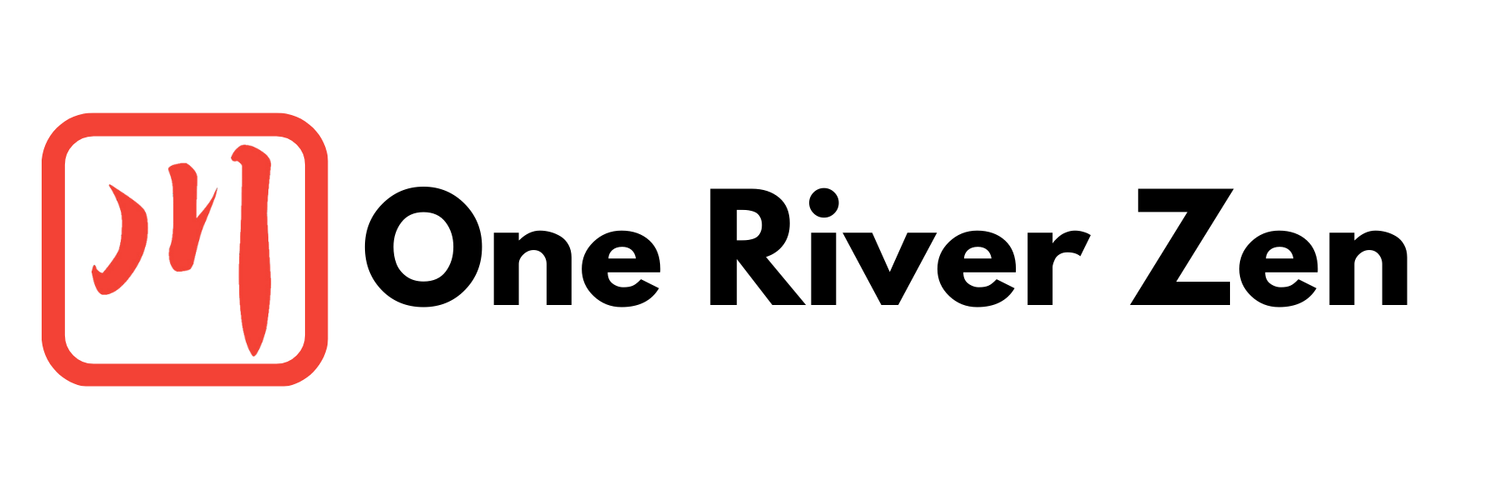Jizo Plants the Field | Shōyōroku Case Twelve
TEISHO TRANSCRIBED SEPTEMBER 28TH, 2024 AT ONE RIVER ZEN:
Welcome on this full, crisp autumn morning! Everything is beginning to change as we move from season to season. It's hard not to be inspired by the beauty of all this change, but we’re not always inspired by that beauty. We often want to cling to some idea of how we would prefer things to be rather than looking at things as they are. I want to talk to you about a case from the Shōyōroku today, or the Book of Equanimity.
It's the third collection of koans that I tend to work with students, and it’s the twelth case. It’s called "Jizo Plants the Field."
Here’s the case:
ATTENTION!
Priest Jizo asked Priest Shuzan, “Where did you come from?”
Shuzan replied, “I came from the south.”
Jizo asked, “How is the Buddha-Dharma down south these days?”
Shuzan said, “There’s a lot of debate going on.”
Jizo replied, “Here, it’s better for me to plant the fields, make rice balls, and eat.”
Shuzan asked, “What about the three worlds?”
Jizo replied, “What is it that you call the three worlds?”
That’s the whole case. Koans use words and language in a way that points beyond concepts and constructs. If you try to work with them logically, you’ll quickly find yourself spinning in circles. But if you let that drop, wisdom emerges naturally. You just have to know where to look.
All mondos like this one are dialogues that call us beyond our place of knowing. This isn’t a conversation about geography or cosmology. It’s a call to break free from the habits that don’t serve us, the karmic constructs that keep us deluded. It’s about moving beyond our habitual entanglements and approaching life freely and openly, taking things as they are.
Jizo begins by asking, “Where did you come from?” Seems simple enough, right? But beware. When we encounter these mondos, they are pointing to something beyond ordinary discursive thinking. So, where did Shuzan come from, really? Not just in terms of physical location, but where does the self arise? What conditions give rise to this “I” that we take so seriously?
How do you construct the self, and how is this “I” serving you? Or rather, are you serving it? Are you serving some idea of what you think you are, rather than acknowledging your true nature?
Shuzan’s response, “I came from the south,” shows that he’s caught in the realm of labels and judgments. He’s not seeing what Jizo is pointing to. Jizo, in a merciful act, shifts the focus: “How is the Buddha-Dharma down south these days?” Now we’re getting closer to the heart of the matter. How is the Buddhadharma anywhere? It’s not located in one place or another; it’s everywhere, in everything.
Shuzan, though, isn’t waking up just yet. He says, “There’s a lot of debate going on.” Oh, isn’t there always? Debate is what happens when we’re caught in the conceptual mind. The more we cling to fixed ideas, the more we debate, grasp, and defend. When we live in the realm of concepts, debate is inevitable. But it never solves anything. The very nature of duality creates debate, setting one thing up against another. It’s the primal disease of the small mind.
Jizo’s response to all this? “Here, it’s better for me to plant the fields, make rice balls, and eat.” So simple, yet it contains the whole of the Buddhadharma. This reminds me of the famous Zen story:
Two students were discussing their masters. One student boasted about the miraculous powers of his teacher, saying, “My master can perform amazing miracles! He can walk on water, fly through the air, and heal the sick with just a touch.” The other student listened quietly and then finally responded, “That’s impressive, but my master’s miracles are even greater.” Intrigued, the first student asked, “What can your master do?” The second student replied, “When my master is hungry, he eats. When he’s tired, he sleeps.”
This story gets to the essence of Zen practice. True wisdom isn’t found in rarefied, magical experiences. It’s here, in the present, in ordinary acts like eating when hungry, sleeping when tired. When we live in this way, we embody complete harmony with the vast Dharmakaya.
Jizo plants the fields, makes rice balls, and eats. He isn’t escaping or ignoring the Buddhadharma—he’s living it. Shuzan, though, still isn’t ready to let go. He says, “What about the three worlds?” He’s referring to the world of desire, the world of form, and the world of formlessness—real teachings in Buddhist cosmology. But Jizo cuts through: “What is it that you call the three worlds?”
As long as you see the three worlds as separate from yourself, you remain trapped in conceptual thinking. The truth is, there’s no gap. The three worlds aren’t external realities to be conquered. They’re right here, in every moment, if you open to them.
This case calls us to drop our attachment to ideas about what life should be. Stop overcomplicating things. Life is exactly as it presents itself, right now. The Buddhadharma isn’t something to be debated; it’s something to be lived. Most of the time, you’ll find it in the most ordinary activities—washing the dishes, comforting someone in pain, celebrating with a friend.
As Jizo shows us, the true path isn’t in the south or north; it’s right here, right now. You’ll find it when you plant the fields, make rice balls, and eat—supporting one another in practice, sitting together as a Sangha.

